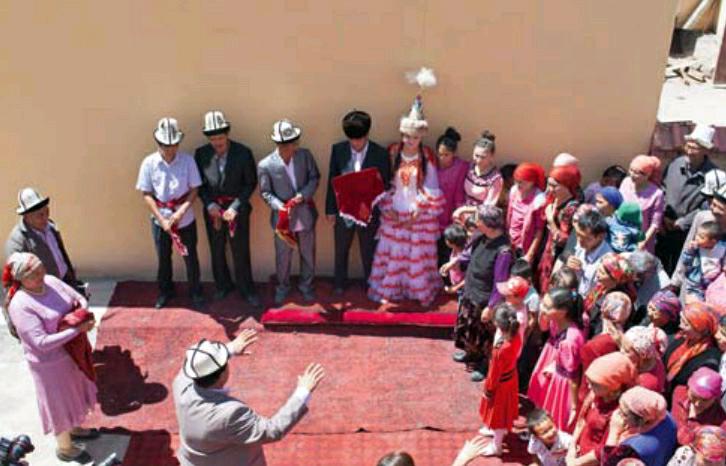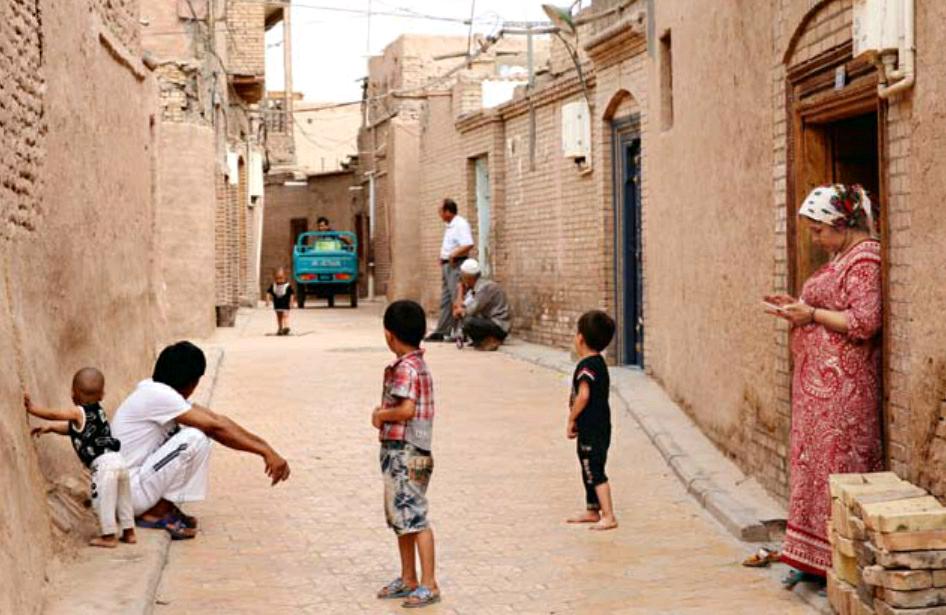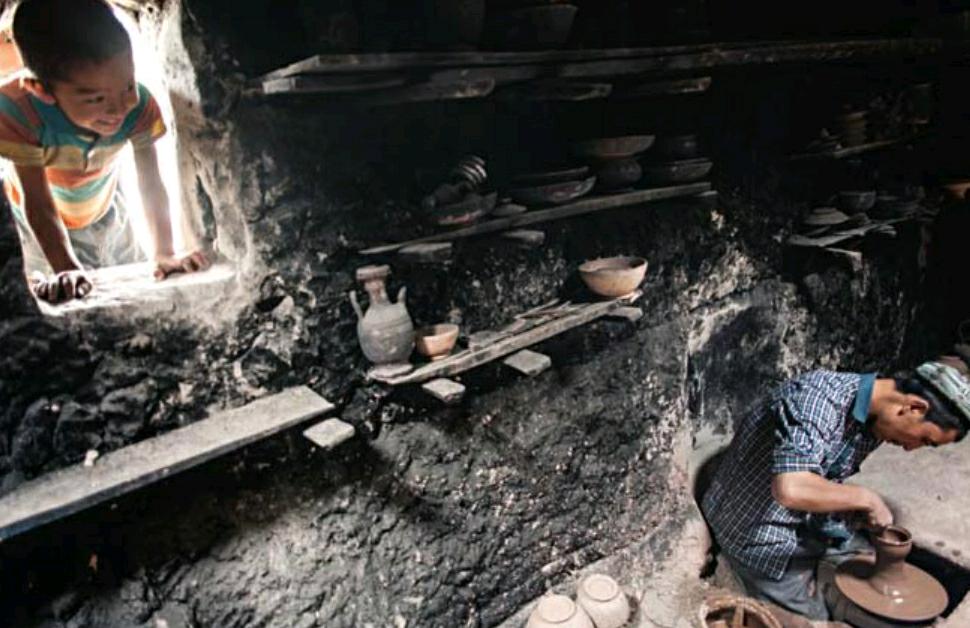Xinjiang:Front and Center
by+Zoe+Zhao

This October marks the 60th an- niversary of the founding of the Xinjiang Uygur Autonomous Region, and a variety of activities have been organized across China to celebrate the big day.
Featuring an unparalleled landscape, Xinjiang is known as “three mountains surrounding two basins.” The Altay Mountains, Kunlun Mountains, and Tianshan Mountains divide Xinjiang into the southern and northern parts, primarily Tarim Basin and Junggar Basin, respectively. Because of geography, southern and northern Xinjiang feature totally different landscapes and cultures. The north is heavily mountainous grassland, which gave birth to a herding culture. To the south is the Gobi Desert along with its agricultural communities. Understandably, cities and people in different parts are drastically different.
Urumqi, the autonomous regions capital, is home to more than 3.5 million people of different ethnic groups, including Uygur, Han, Kazakh, Mongolian and Hui. Amidst a fairly cosmopolitan atmosphere one might expect in such an international city at a key global geographic point(Urumqi is dead center of the Eurasian subcontinent, geographically – the most landlocked, furthest city from the ocean in the world), people living and passing through are open and engage in every imaginable occupation from street kebob vendor to pasta chef, from horse-drawn cart driver to four-by-four sales manager, from craftsman to art dealer. People in Urumqi embrace a fusion of tradition and modernity, and of past and present.
It seems every city in Xinjiang maintains some unique charm. Turpan, a prefecture-level city, has long been an important trading hub at the center of a fertile oasis afforded by water from the world-renowned karez system, an irrigation network of wells connected by underground channels. Despite an extreme arid climate, the area produces many fruits, with its grapes being internationally renowned for high sugar concentration. So, many in Turpan are engaged in tourism or fruit-related industries. From late summer to early autumn, when grapes ripen, many households in Turpan run a seasonal business: They offer a farm-based tourism by opening their vineyards to tourists and organizing activities such as vineyard mazes and pick-your-own grapes.
